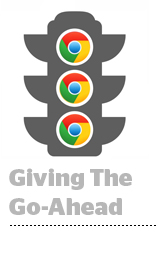 Google had always been eager to kill shoddy ad formats, because doing so would stall ad-blocker growth. At the same time, it didn’t want to be the judge and jury, so it needed a mechanism to do so.
Google had always been eager to kill shoddy ad formats, because doing so would stall ad-blocker growth. At the same time, it didn’t want to be the judge and jury, so it needed a mechanism to do so.
Enter the Coalition for Better Ads (CFBA), a nonprofit founded by the IAB, ANA and 4As to research and determine which ad formats harm the user experience. Noncompliant formats include autoplay videos with sound, immovable “sticky ads” that take up more than 30% of a smartphone or computer screen and prestitial ads that block content.
It’s no surprise that one day after the CFBA debuted its enforcement mechanism, the Better Ads Experience Program (BAEP), Chrome issued a developer note announcing it would enforce the program beginning in February.
The BAEP is a certification system to which media companies opt in and which ad platforms like Google, agencies or even ad blockers (which filter ads) can use to determine baseline format standards.
To avoid the logjam of approving websites one by one, Stuart Ingis, a partner at the law firm Venable who oversees the CFBA, said the certification process is a contract signed by the publisher asserting that it doesn’t serve noncompliant ads.
But Google isn’t strictly enforcing BAEP certification, said Scott Spencer, Google’s director of product management for sustainable ads and representative to the CFBA subcommittee that determines the group’s standards. Publishers that aren’t certified but haven’t been reported in violation of the ad standards won’t be filtered out.
But certified publishers have a guaranteed process where, after reports of violations, their site is tracked for a month and then the board evaluates whether to decertify the publisher. By contrast, uncertified sites risk being blocked with no recourse.
Ingis said the annual fee publishers must pay for certification is still being determined, and may not be established before Chrome begins enforcement.
“We don’t envision a fee for small publishers in any case, but it’ll be dictated by the economics of who processes the most ad revenue,” Ingis said. “If this is successful in a year or two it’s easy to envision adoption levels that bring the cost for any individual publisher to near zero.”
Still, publishers are likely to bristle at the idea of paying an annual fee simply to have due process in case of a complaint.
“Publishers are leading the way toward a cleaner, better user experience,” said Jason Kint, CEO of the news media trade group Digital Content Next, which is also a CFBA board member. “It remains disappointing that Google pays undisclosed amounts to the largest ad blockers on the planet to whitelist its ads.”
Kint was referring to the Acceptable Ads Committee, an ad-filtering program enforced by the ad block developers Adblock Plus and AdBlock. Google is the largest contributor to that program, reportedly spending $40 million to $50 million per year to whitelist its ads to ad-block users.
Throwing a wrench in that ad blocker revenue is Google’s explicit strategy as well.
Google Ads and Commerce SVP Sridhar Ramaswamy, speaking at the company’s Publisher Leadership Summit in Chicago in October, said he hopes “that once this is in place, there’s no need for ad blocking on mobile.”
The IAB, a board member organization of the CFBA, declined to comment on the record.













